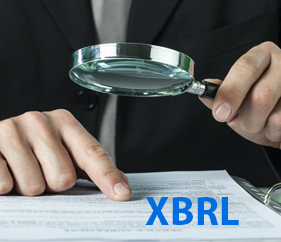Top 3 Reasons for Shifting to XBRL Conversion
 Businesses entities, both, unlimited and limited by shares, operating under Singapore jurisdiction, must file their full set of financial statements using XBRL file format. The goal of implementing XBRL is to bring complete transparency in the financial data communicated by the business organizations to the authorities and thus, to the general public.
Businesses entities, both, unlimited and limited by shares, operating under Singapore jurisdiction, must file their full set of financial statements using XBRL file format. The goal of implementing XBRL is to bring complete transparency in the financial data communicated by the business organizations to the authorities and thus, to the general public.
SBS Consulting is a firm that offers expert advice and reliable Singapore XBRL filing service. It relieves clients from the tediousness associated with the effective compliance of the process and saves time. Such a mandatory filing of information, helps businesses in becoming more visible and in getting public acceptance.
1) Information Sharing Tool – Today, XBRL is a globally used information exchange tool. It used extensively by businesses to communicate business and financial information. Using XBRL file format, businesses can share information in multiple languages and in compliance with the Singapore accounting standards. SBS Consulting, which is helping its business clients in complying with the Singapore laws, stands out as a right business associate for XBRL filing.
2) Data Transparency – Finance related entities such as stock traders, brokers, regulators, agencies keeping track of financial and economic trends, stock exchanges and companies dealing in financial information require accurate and reliable information. They use this data to make financial decisions, which sometimes, has the potential of affecting economy at global level. A company providing clear and concise information in XBRL format attracts financial backing at low cost of capital.
3) XBRL as a Tool for Experts – XBRL provides automated real-time data for the experts like auditors who can use to it update client’s audit. Financial analysts use this data to compare, draw conclusions about business organizations, and report it to the investors. Implementing XBRL helps businesses in streamlining tax returns and propagation of non-financial information such as production output, inventory etc.
Stockholders use real-time XBRL reporting to understand the status of the business organization in which they are interested. The data is available easily and can be extracted for further use. XBRL reporting automates flow of information from companies and their vendors, customers and business partners.
In 2007, Accounting and Corporate Regulatory Authority (ACRA) made XBRL filing mandatory. Since then, XBRL has seen a few updates which has made the process of financial reporting even more transparent and user oriented.





